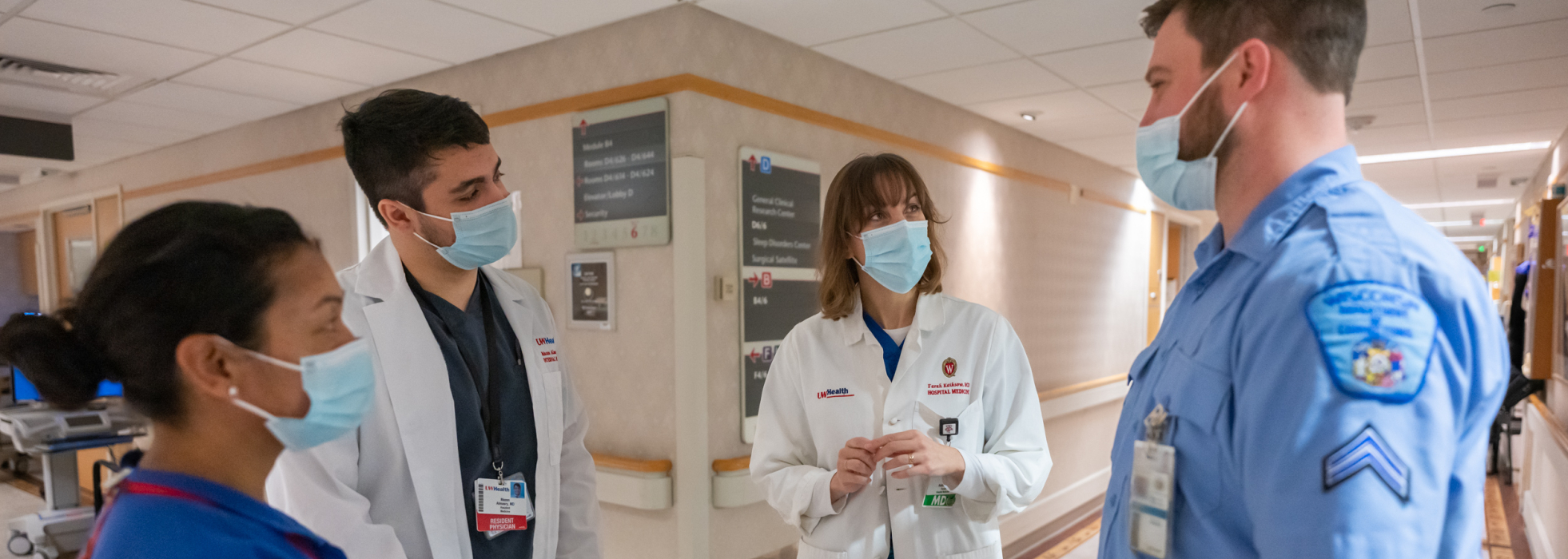Caring for the Aging Incarcerated Population
Farah Acher Kaiksow, MD, MPP, is a hospital medicine clinician and health equity researcher.
Her specific area of expertise is at the intersection of incarceration and health, with a focus on the impact of hospitalizations on the rapidly growing population of older incarcerated adults.

Reducing the Risks of Hospitalization for Older Incarcerated Adults
Dr. Kaiksow’s research studies the impact of incarceration-specific care processes on older incarcerated adults.
Hospitalizations are high-risk events that can cause functional and cognitive decline, especially for older adults.

The Relationship Between Incarceration, Aging and Hospitalization
The U.S. is a world leader in incarceration, and the incarcerated population is aging. As of 2019, more than 21% of incarcerated adults in the U.S. – nearly 300,000 people – were 50 years or older. As this demographic shift happens, more incarcerated adults will require hospitalization.
People who are incarcerated are more likely to be from communities impacted by ongoing discrimination and of lower socioeconomic status. They face higher rates of mental health conditions and cognitive impairment than individuals who are not incarcerated.
Incarceration is also associated with accelerated aging, with one study estimating that every year spent in prison shortens an individual’s lifespan by two years.
Some incarceration-specific inpatient care practices – such as shackling and limiting social interactions – are likely to worsen the impact of hospitalizations on older incarcerated adults.
Dr. Kaiksow's work aims to reduce the risks of hospitalization for this already vulnerable population.
Active Projects
- Identifying Obstacles and Facilitators to Change
This study aims to gather foundational data on potential obstacles and facilitators to changing the care processes for older incarcerated adults in the hospital. Through interviews with Correctional Officers, health care providers, and incarcerated patients themselves, this work will provide the clearest picture yet on how incarcerated patients are cared for in the hospital and how their care might be different from the care provided to others.
- Impact of Stigmatizing Language on Incarcerated Patients in the Hospital
Stigmatizing language is common in the medical record and has been shown to negatively impact the care of people with substance use disorder, both through transmission of assumptions and through differences in treatment. The effects of stigmatizing language are particularly severe for people from vulnerable populations.
Despite well-known assumptions against people who are incarcerated, and the disproportionate impact of incarceration on vulnerable populations, there is little data on the presence or impact of stigmatizing language in the medical record for this group.
This study aims to qualitatively and quantitatively assess for stigmatizing language in hospital notes for patients who are hospitalized while incarcerated.
- Measuring the Value of Data
This project builds on Dr. Kaiksow’s previous work to assess how well the care of incarcerated patients is documented. Using state-specific databases from the Agency for Healthcare Research and Quality, Dr. Kaiksow’s team will assess the validity of current identification methods for incarcerated patients. Access to reliable data is essential for meaningful research in this understudied field.
Funding Support
Dr. Kaiksow’s work has been funded by a Career Development Award from the National Institute on Aging at the National Institutes of Health (NIH), and by the University of Wisconsin Institute for Clinical and Translational Research.

